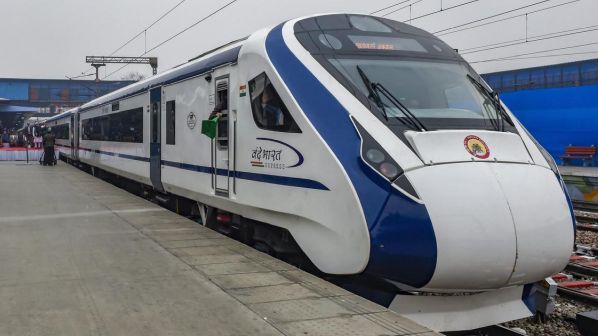THE government has allocated Indian Railways (IR) a record sum of Rs 2400bn ($US 32.9bn) for capital outlay in the 2023-24 financial year, including Rs 375bn for new rolling stock and fleet modernisation.
According to budget documents, an allocation of Rs 401bn has been earmarked for the National High Speed Rail Corporation (NHSRC), which is overseeing the flagship project to build a high-speed line from Mumbai to Ahmedabad.
Of this, Rs 195bn will be in the form of budgetary support, while an additional Rs 205bn will be raised through extra-budgetary resources.
At Rs 375bn, the allocation for spending on rolling stock represents a considerable increase on the Rs 79bn provided in the 2022-23 budgetary estimates.
Provision has been made in the budget for the manufacture of 1000 additional and smaller eight-car Vande Bharat EMUs, 25 hydrogen-powered trains and 150 air-conditioned EMUs for mainline duties, to be known as the Vande Metro.
A total of 3000 electric locomotives will be built at IR workshops in Dahod and Varanasi, and 55,000 newly designed wagons will be procured under a public-private partnership (PPP).
Infrastructure spending includes an allocation of Rs 318bn for new line projects, Rs 307bn for track doubling and Rs 173bn for track renewals. Rs 274bn has been earmarked for the Eastern and Western Dedicated Freight Corridor projects.
Alongside this increased investment funding, IR is expected to generate more revenue internally. Projections have been set at Rs 2650bn against the Rs 2420bn in the revised estimates for 2022-23.
Speaking after finance minister, Ms Nirmala Sitaraman, had delivered her budget speech in the lower house of the Indian parliament, railways minister, Mr Ashwani Vaishnaw said that the increased allocation would help IR realise its potential after many years of budget deficit.
The budgeted increase in expenditure is almost 10% higher that 2022-23, but there is concern at the slow pace of revenue generation within IR.
“In the last nine years, rail revenues have increased a mere 1.6 times, while a nine-fold increase in capital expenditure has been witnessed,” says former IR official, Mr S K Luthra.
Former ICF general manager, Mr Sudhanshu Mani, says that the government is hoping that rail investment will boost the national economy by helping the manufacturing and services sectors to grow. “The political leadership does not seem to be taking an isolated view of rail revenues,” he says. “But, of course, IR needs to ramp up its revenue-generation activities.”
Surprise has also been expressed at the size of the allocation in 2023-24 for track renewals, only 12% up on the year before despite the critical nature of this task that will ensure that Vande Bharat trains can operate at their potential maximum speed of 160km/h.
“After adjustments for inflation, the hike would actually work out to be a negligible increase,” says former Railway Board member, Mr Subodh Jain.
For detailed data on infrastructure projects and rolling stock orders from around the world, subscribe to IRJ Pro.

